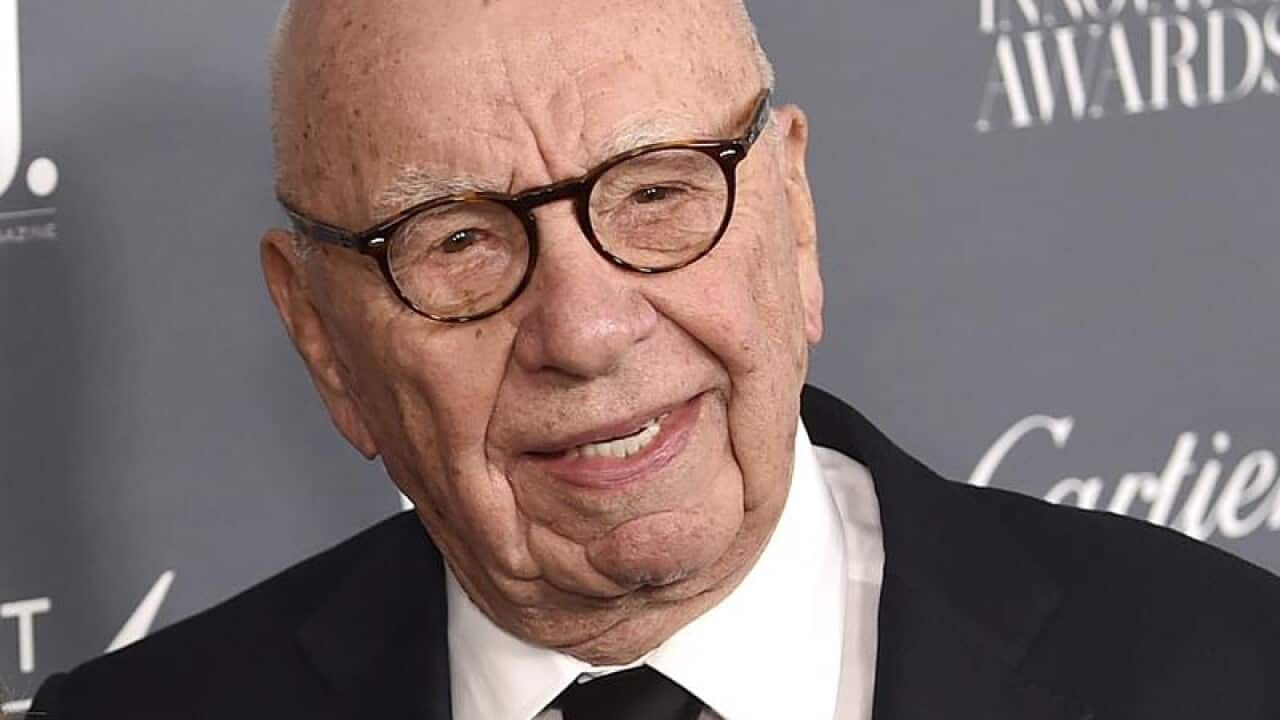Mr Rudd shared over the weekend, requesting a Royal Commission into the “abuse of media monopoly in Australia” by the Murdoch press -- which he dubbed an “arrogant cancer on our democracy”.
“70 per cent of our print readership is owned by Murdoch,” Mr Rudd said in a video posted to Twitter.
“In my state of Queensland, which swings so many federal election outcomes, Murdoch owns virtually each and every one of the newspapers up here,” he continued.
Mr Rudd said that in the past 18 state and federal elections, “Murdoch has viciously campaigned in support of one side of politics: the Liberal National Party.”
In the video he claimed Rupert Murdoch keeps “loss-making” papers in order to “maximise his political power in the country in defence of his ideological interests like climate change denial.”
Mr Rudd has a historic feud with News Corp that dates back to when he was Prime Minister.
In 2013, The Daily Telegraph published a photo of Kevin Rudd on the front-page next to words reading “kick this mob out”.
Another front page by The Sunday Telegraph in the same year featured a photo of former Prime Minister Tony Abbott -- who was Opposition Leader at the time -- in front of an Australian flag, with the headline "Australia needs Tony".

Rupert Murdoch's Sydney Daily Telegraph newspaper. Source: Getty
Why is it necessary to hold a Royal Commission?
Dr David McKnight, an Associate Professor at the University of NSW, believes that for decades the Murdoch press has been a “political force” as much as it has been a medium.
“It’s really hardly worth discussing that he’s capable of turning his media empire against Labor,” Dr McKnight said.
“If you trace Rupert Murdoch’s career and these moves, they are as much about gaining influence as they are making money. A lot of people get it wrong and they think he’s only interested in profit,” he told The Feed.
Dr Timothy Dwyer, an Associate Professor of Media and Communications at the University of Sydney, says Nine and News Corp own the majority of news publications in Australia. He believes Australians deserve access to a diverse range of viewpoints.
“The initiative by ex-Prime Minister Kevin Rudd is very welcome and it makes a lot of sense because it’s probably one of the few ways that an in-depth independent judicial inquiry into media reform can take place,” he said.
Dr Dwyer believes News Corp’s “campaign” against Labor governments and politicians has continued this year, with its papers labelling Victorian Premier Dan Andrews “Dictator Dan”.
News Corp paper Sunshine Coast Daily recently printed an image placing Queensland Premier Annastacia Palaszczuk in the crosshairs of a rifle with the words “Anna, you're next”.
“It’s just the latest example of News Corp attempting to destabilise and have regime change. He attempts to remove politicians he doesn’t like and who aren’t helpful for his business aspirations,” Dr Dwyer said.
What would the Royal Commission look at?
There are several areas where media reform could occur, according to Dr Dwyer.
He believes that a public interest test should be implemented before two publications merge to assess whether the joining of two companies would benefit Australians.
Dr Dwyer says the Royal Commission could also recommend “new laws to prevent further media concentration and regular reviews into the media landscape as people’s consumption of media changes.”
While Dr McKnight says if a Royal Commission were to take place it should be about “how people get their news in a broader sense” and include an inquiry into Facebook’s conflict with media platforms.
“It should address how all citizens in Australia could get easier and free access to unbiased news and look at the way SBS and ABC have been affected by cuts in the last few years,” he said.
Would it change anything?
Dr Dwyer told The Feed that Australian governments have historically been reluctant to introduce real reform when it comes to media ownership and concentration.
He believes this is because of the fear of retribution from the Murdoch empire.
“Unfortunately, history shows that in Australia and elsewhere, politicians are very reluctant to introduce media laws which would threaten their own existence,” he told The Feed.
For this reason, he says it’s “extremely unlikely” that politicians would be “brave enough” to implement Royal Commission recommendations.
“It’s not surprising that Mr Albanese, the Leader of the Opposition, is saying it’s not a Labor Party policy because that’s the last thing the party needs, ahead of a federal election next year, is to have the most powerful media group offside,” Dr Dwyer said.
“It’s a very pragmatic response but also very disappointing that the Labor Party isn’t wanting to progress media reform,” he said.
“That’s the problem: politicians are too close to it.”


